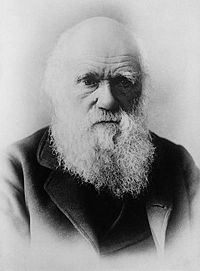Criticisms of weak atheism
Weak atheism sometimes referred to as "negative atheism") describes a belief system and philosophical stance whereby a person lacks a belief in God/gods.
There has been a number of legitimate criticisms of the concept of weak atheism from prominent theists (see: Theistic responses to weak atheism).
Contents
Additional problems with the concept of weak atheism
See also: Denials that atheists exist and Atheists doubting the validity of atheism
In addition to the legitimate criticisms of weak atheism offered by prominent theists, there are some additional reasons to be skeptical of the concept of weak atheism.
See also: Science journal and science magazine quotes about atheism and mental processes
Below are relevant quotes from a science magazine/journal:
“Atheism is psychologically impossible because of the way humans think... They point to studies showing, for example, that even people who claim to be committed atheists tacitly hold religious beliefs, such as the existence of an immortal soul.” - Graham Lawton in the New Scientist[1] science magazine. See also: Atheism and life after death and Atheism and death
“A slew of cognitive traits predisposes us to faith.” - Pascal Boyer, in the British science journal Nature [1]
Atheism and purpose incidents and research
Prominent atheists/agnostics indicating that they repeatedly have thoughts that the world is designed/purposeful and research showing that many individuals in the general population of atheists/agnostics frequently have these thoughts also (See: Atheism and purpose).
While some individuals give more thoughtful deliberation on the issue of the existence of God and the purpose of life than others (see: Atheism and apathy and Apatheism), it is common for atheists/agnostics to dwell on the issue of purpose (see: Atheism and purpose).[3]
Also, notable atheists have had the characteristic of variability and instability when it came to maintaining thoughts in accordance with atheism. For example, Jean-Paul Sartre was one of the leading proponents of atheism of the 20th Century. He was one of several popularizers of the philosophy of existentialism.
Yet, Jean-Paul Sartre made this candid confession:
| “ | As for me, I don’t see myself as so much dust that has appeared in the world but as a being that was expected, prefigured, called forth. In short, as a being that could, it seems, come only from a creator; and this idea of a creating hand that created me refers me back to God. Naturally this is not a clear, exact idea that I set in motion every time I think of myself. It contradicts many of my other ideas; but it is there, floating vaguely. And when I think of myself I often think rather in this way, for wont of being able to think otherwise.[4] | ” |
Even in atheistic Japan, researchers found that Japanese children see the natural world as designed and purposeful and believe some kind of intelligent being is behind that purpose.[5]
One of the most popular arguments for God's existence is the teleological argument. Derived from the Greek word telos, which refers to purpose or end, this argument hinges on the idea that the world gives evidence of being designed, and concludes that a divine designer must be posited to account for the orderly world we encounter. See also: Evolution and Intelligent design and Creation science

The evolutionist Charles Darwin wrote in his private notebooks that he was a materialist, which is a type of atheist. In his autobiography Charles Darwin wrote about the diminishment of his religious faith and Darwin stated that he was an agnostic.[8] Darwin's worldview is best described as agnosticism/weak atheism (see: religious views of Charles Darwin) [9][10]
The Stanford Encyclopedia of Philosophy states:
| “ | In 1885, the Duke of Argyll recounted a conversation he had had with Charles Darwin the year before Darwin's death:
In the course of that conversation I said to Mr. Darwin, with reference to some of his own remarkable works on the Fertilization of Orchids, and upon The Earthworms, and various other observations he made of the wonderful contrivances for certain purposes in nature — I said it was impossible to look at these without seeing that they were the effect and the expression of Mind. I shall never forget Mr. Darwin's answer. He looked at me very hard and said, “Well, that often comes over me with overwhelming force; but at other times,” and he shook his head vaguely, adding, “it seems to go away. ”(Argyll 1885, 244)[11] |
” |

The Apostle Paul wrote:
| “ | For the wrath of God is revealed from heaven against all ungodliness and unrighteousness of men, who by their unrighteousness suppress the truth. For what can be known about God is plain to them, because God has shown it to them. For his invisible attributes, namely, his eternal power and divine nature, have been clearly perceived, ever since the creation of the world, in the things that have been made. So they are without excuse. - Romans 1: 18-20 [12] | ” |
On October 17, 2014, the New York Times published an article entitled Does everything happen for a reason? which declared:
| “ | But research from the Yale Mind and Development Lab, where we work, suggests that this can’t be the whole story. In one series of studies, recently published in the journal Cognition, we asked people to reflect on significant events from their own lives, such as graduations, the births of children, falling in love, the deaths of loved ones and serious illnesses. Unsurprisingly, a majority of religious believers said they thought that these events happened for a reason and that they had been purposefully designed (presumably by God). But many atheists did so as well, and a majority of atheists in a related study also said that they believed in fate — defined as the view that life events happen for a reason and that there is an underlying order to life that determines how events turn out.
These atheists’ responses weren’t just the product of living in America’s highly religious society. Research done at Queen’s University in Belfast by the psychologists Bethany Heywood and Jesse Bering found that British atheists were just as likely as American atheists to believe that their life events had underlying purposes, even though Britain is far less religious than America. In other studies, scheduled to be published online next week in the journal Child Development, we found that even young children show a bias to believe that life events happen for a reason — to “send a sign” or “to teach a lesson.” This belief exists regardless of how much exposure the children have had to religion at home, and even if they’ve had none at all.[13] |
” |
Developments within the field of Christian apologetics
Christian apologetics is the defense of the Christian faith through logic/evidence based arguments. . In recent years there has been a renaissance and proliferation of compelling material supporting Christianity and offering rebuttals to the worldview of atheism (see: Rebuttals to atheist arguments).
In June of 2012, the UK based Dorsett Humanists wrote:
| “ | There’s been a forceful backlash against the ‘new atheism’ of writers like Richard Dawkins and the late Christopher Hitchens, inspiring a new wave of Christian apologists. This group includes: Alister McGrath, Professor of Theology at King’s College London, Keith Ward, former Professor of Divinity at Oxford, and John Lennox, Professor of Mathematics at the University of Oxford.
Many atheists make the mistake of assuming religion is wholly irrational, relying on faith alone but, in a series of interviews recorded for DVD, the apologetics heavyweights from the list above demonstrate their ability to challenge us with reasoned arguments.[14] |
” |
Creation apologetics
One of the subdisciplines of Christian apologetics is creation apologetics and there has been a corresponding proliferation/dissemination of creation apologetics which has had an significant effect on Christendom (see: Global creationism and History of the growth of creationism and its effect on Christendom).
Retention rate of atheists
In 2012, a Georgetown University study was published indicating that in the United States only about 30 percent of those who grow up in an atheist household remain atheists as adults.[15] According to Dr. Mark Gray, "of those raised as atheists, 30% are now affiliated with a Protestant denomination, 10% are Catholic, 2% are Jewish, 1% are Mormon, and 1% are Pagan."[16]
Similarly, according to recent research by the Pew Research Forum on Religion and Public Life, in the United States, a majority of those surveyed who were raised in atheist or agnostic households, or where there was no specific religious attachment, later chose to join a religious faith.[17][18]
Furthermore, a tremendous amount of people in atheistic communist countries or former communist countries have become Christians and this is still occurring.
See:
Notes
- ↑ 1.0 1.1 Unruh, Bob (July 19, 2014). "Scientists: atheists might not exist". WorldNetDaily. Retrieved on February 21, 2015.
- ↑ Children see the world as designed
- ↑ Does everything happen for a reason?
- ↑ Escape from God: The Use of Religion and Philosophy to Evade Responsibility By Dean Turner, page 109
- ↑ Children see the world as designed.
- ↑ http://plato.stanford.edu/entries/teleological-arguments/notes.html
- ↑ http://www.darwinproject.ac.uk/entry-2109
- ↑ http://www.update.uu.se/~fbendz/library/cd_relig.htm
- ↑ Darwin’s real message: have you missed it?
- ↑ American Scientist May 1977:323
- ↑ Notes to Teleological Arguments for God's Existence
- ↑ Romans 1: 18-20 English Standard Version translation
- ↑ Does everything happen for a reason?
- ↑ Philosophy, Science and the God Debate
- ↑ Study: Atheists Have Lowest 'Retention Rate' Compared to Religious Groups
- ↑ Study: Atheists Have Lowest 'Retention Rate' Compared to Religious Groups
- ↑ http://www.theaustralian.com.au/news/opinion/defectors-to-faith-mark-a-growing-trend/story-e6frg7ko-1225710667095
- ↑ http://pewresearch.org/pubs/1204/religion-changes-affiliations-survey

